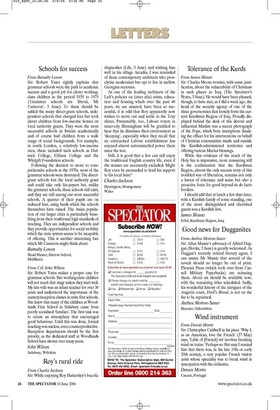Schools for success
From Barnaby Lenon
Sir: Robert Yates rightly explains that grammar schools were the path to academic success and a good job for clever workingclass children in the period 1935 to 1975 (‘Grammar schools are liberal, Mr Cameron’, 3 June). To these should be added the many direct-grant schools, independent schools that charged fees but took clever children from low-income homes on local authority grants. They were the most successful schools in Britain academically and of course had children from a wide range of social backgrounds. For example, in south London, a relatively low-income area, these included such schools as Dulwich College, Eltham College and the Whitgift Foundation schools.
Following the decision to move to comprehensive schools in the 1970s, most of the grammar schools were destroyed. The directgrant schools lost the local authority grant and could take only fee-payers but, unlike the grammar schools, these schools still exist, and they are still among our most successful schools. A quarter of their pupils are on reduced fees, using funds which the schools themselves have raised. The Asian population of our larger cities is particularly benefiting from their traditional high standards of teaching. They are independent schools and they provide opportunities for social mobility which the state system seems to be incapable of offering. This is another interesting fact which Mr Cameron might think about.
Barnaby Lenon
Head Master, Harrow School, Middlesex


















































































 Previous page
Previous page